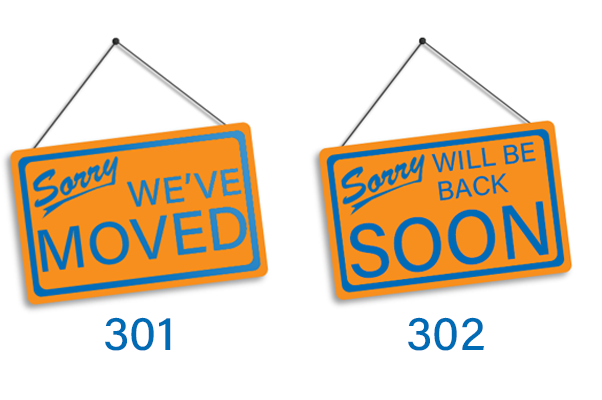What Do 301 Redirects Do?
The world of redirects can be a daunting one. It is so easy to mix the roles of the different type of redirects and what their roles are.
There are:
- 301 redirect
- 302 redirect
- 307 redirect
Then you hear webmasters refer to them as 3xx or 30x which is just the blanket term given to all the redirects starting with “30”.
In this article from iocea eCommerce agency Lincoln, our website experts will discuss these and their impact.
There are many reasons that you may want to use a redirect
These include:
- The URL may no longer work or is broken
- The Web page may be inactive
- You may have created a new site that you want people to visit instead of the old one
- You are conducting A/B testing on some new content
- Your site may be “under construction” and you want to redirect the user to a different page.
What do redirects do?
301 Redirects
301 is used when you wish to permanently redirect to another page that allows almost all Page Equity, a sort of score for how a website’s links interact, to be allocated to the new page. 301 may be the most commonly used redirect as it held the status of the “Best Method for Redirecting” for quite some time. A 301 redirect completely takes over the old page as it replaces the former URL in Google’s index. 302 is for when you would like to temporarily send customers to a new website with the intention of bringing them back to the original site. The means that ranking factors such as PageRank, Link Equity and Traffic Value will not be moved to the redirected site and the original page will retain these factors.
302 Redirects
302 redirects are uncommon but may be used in situations where you wish to test new websites without damaging the ranking factors of the current site. Probably the least common and often interpreted as a 302, 307 is the HTTP 1.1 evolution of the 302. On very rare occasions and with a specific set of variables is a 307-redirect used, and even then it seems a 302 maybe be safer to use.

Do 301 redirects affect SEO?
Back in 2016, Google announced that “30x redirects will no longer lose page rank anymore” however webmasters were initially wary as page rank is only one ranking factor Google uses to determine the rank of a website for certain keywords. Google, at the time, was trying to get everyone to switch over from HTTP to HTTPS and as an incentive some of the webmasters. They offered a 15% boost in ranking score to counteract any loss of traffic due to use of a 301, which was required to direct people to the new HTTPS URL.
Results were varied initially as it is always wise to take what Google says with a pinch of salt and to be patient before changing anything major based on their recommendations. However, the present-day landscape of the internet is very different. As most major websites have HTTPS, Google has started to indicate that it will begin to punish any site that still has HTTP showing a “not secure” grey label at the start of the URL. In terms of SEO, it more about not being punished by Google than improving any ranking factors. You do not want to be the only one out of all your competition to not have a “secure website.”
If you are looking for advice regarding SEO, Digital Marketing or have any eCommerce related queries, do not hesitate to contact one of our experts at iocea web agency Lincoln.